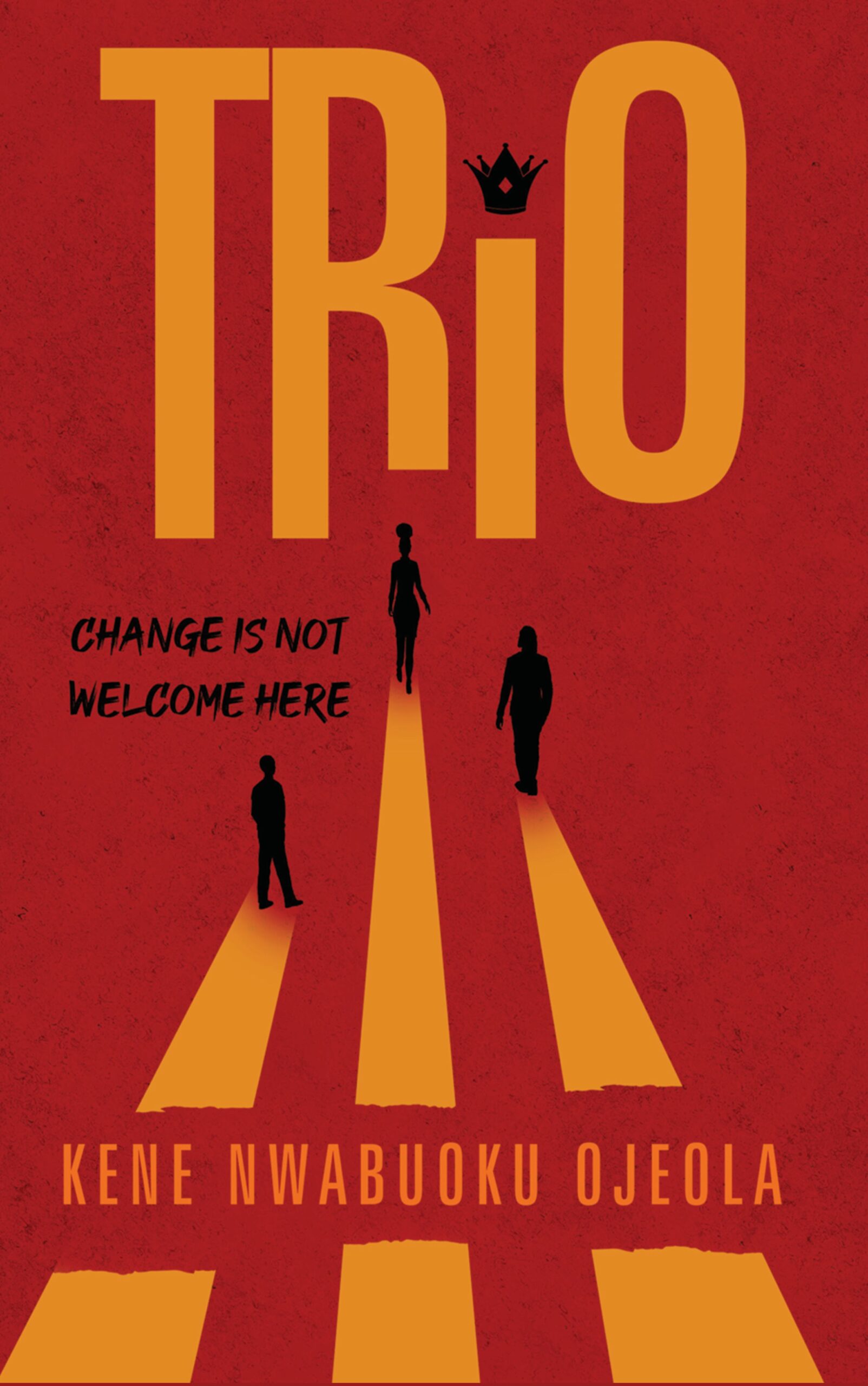Features
BN Book Review: Trio: Change Is Not Welcome Here by Kene Nwabuoku Ojeola | Review by The BookLady NG

When a book reflects reality, you lean into it and let it expose all the ills that plague it. Trio sets off a series of events that unbalances the ruling structure of the land of Ikain: corrupt leaders, stolen funds, divided factions, and a secret-riddled government. But prominent among the core themes are the old versus the new and the disruptive nature of change. Three families have ruled the land of Ikain since its inception. They have held up the culture and the very essence of the nation together, fostering growth, stability, and progress. Along the way, a rot began to fester within the ruling families, and the old must now give way to this new generation of rulers after the Conid plague. The change they so clearly detest has to occur.
At the centre of these unfolding events are Ardarora, Uzhor, and Ifarnyi. Told through their perspectives, the story unpeels layers of sedition, betrayal, and conspiracy. Ardarora, Uzhor, and Ifarnyi are not merely heirs caught in a political tide. They are the embodiment of a question Ikain has long refused to answer: who decides the future when the past refuses to move aside? Ardarora is a young and perceptive woman, born into a royal family through no fault of hers, yet publicly criticised for every wrong turn. Through her, we see the weight of visibility, how a woman born into privilege is still expected to earn every inch of respect. Despite this, she demonstrates a strong sense of character, puts on a brave front, and moves through life with her shoulders high. Her strength is not loud; it is steady, the kind that allows her to stand tall even when the world insists she shrink.
Uzhor is the king’s direct descendant, and he must take the throne when his father steps down. He has a carefree nature, which serves as a shield because, deep down, he nurtures his fears and doubts. His conflict goes beyond the surface. He walks through life with a smile, but beneath the ease is a boy who knows the throne is both an inheritance and a burden. His doubt is a quiet companion, reminding him that leadership demands more than lineage. Then there is Ifarnyi, the mystery man, building walls around himself out of fear and principle. He is the character who forces you to look twice, who consistently pokes the hornet’s nest, who pushes others just as he pushes himself, and whose silence often says more than the loudest declarations.
Together, these three carry the story with an innocence that clashes against the darker truths of their world. Their perspectives intersect, pulling Ikain closer to a reckoning it can no longer postpone. And as their individual journeys begin to unfold, the novel makes one thing clear: change does not arrive politely. It disrupts, exposes, and demands. It reveals who has grown comfortable in corruption and who is willing to risk everything for renewal. By the time the story settles, you understand that Trio is not only about rightful heirs or political upheaval. It is a mirror held up to any system that has grown complacent. A reminder that stability without progress is simply stagnation wrapped in tradition. The characters are flawed, hopeful, and quietly brave, carrying a resilience that makes you root for them even when the odds lean heavily against them.
There is also a recurring thread of identity and belonging. Whether by birth, expectation, or circumstance, each member of the trio grapples with who they are versus who they are permitted to be. In the case of Uzhor, he longs to be known, yet vehemently shields himself from any form of connection. His father’s legacy puts him under pressure to excel, yet he is constantly at war with being perceived as refined, accessible, and worthy. It’s a thin line he walks for the better part of the story until he relaxes the weight of the expectation he’s placed on himself.
The book also raises more difficult questions. Can true leadership flourish in a system built to restrict personal freedom? As the trio push against the boundaries of tradition, duty, and their own convictions, the story shows how quickly identity becomes political in a kingdom where every choice is examined under an unforgiving lens. And beyond that lies another question: can a society that clings so tightly to ignorance ever attain the wisdom it needs to move forward? For the people of Ikain, it is easier to sit on the other side of knowledge, yet this very distance keeps them stagnant. Where their suffering could have been shaped into strength, they allow it instead to hinder their progress. The power structures cling to predictability, even when it harms the people they claim to protect.
What unfolds in Trio is not just a political struggle; it is a quiet, persistent battle between what has always been and what must become. The Conid plague may have marked the beginning of Ikain’s unravelling, but the true fracture lies in how tightly its leaders cling to the familiar. The tagline “Change is not welcome here” is a testament to the stubborn will of a nation averse to progress.
Amidst the political warfare, the author reminds us that love can take root even in the most unlikely places. Ojeola’s exploration of it is gentle, almost understated, yet it sits firmly at the heart of the narrative. With so many teachable moments lining the edges of the story, readers don’t need to search for hidden meanings to understand the lessons being offered. In this debut fiction, the author raises pressing questions and presents thoughtful solutions that reach far beyond the borders of Ikain. By telling the story through the eyes of the ruling factions, she offers us a rare glimpse into how power confronts its own failures and navigates the challenges before it. It is a story worth picking up at least once.





















